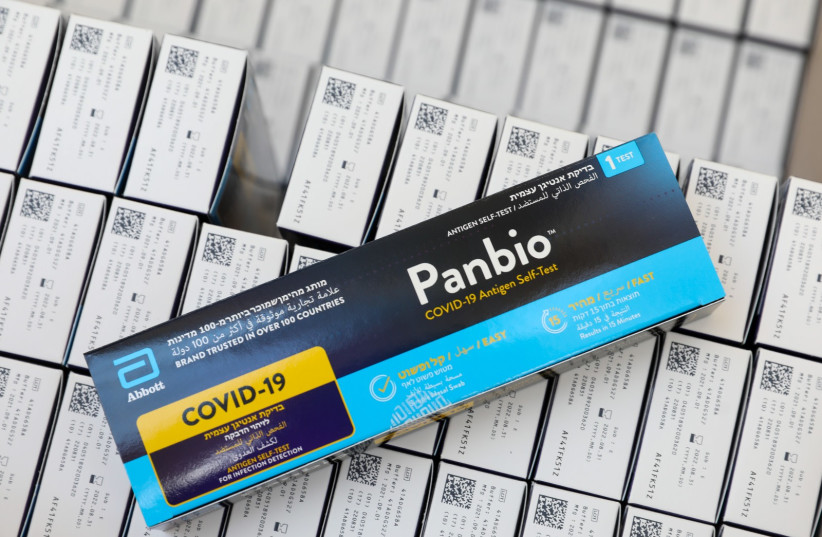Took a COVID test at home and got a faded line? This is what it means

Many people who do antigen tests at home are confused when the second line comes out faded, almost invisible.
Many people who take at-home coronavirus tests are confused by the results when the second line, which should indicate if they are positive for the disease, is very faded, almost invisible - but still there.
Does this mean the test is positive? Negative? Why is there no unequivocal result? Well, as any woman who has ever taken a home pregnancy test knows - a line is a line, it doesn't matter how bright it is, so that means you're positive for coronavirus. But, we also have good news.
Experts say unclear results in at-home antigen tests may be more common now - but it's not because the tests are ineffective, but precisely because our immune system is more efficient.
What does it mean?
"When a rapid test is clearly positive, with a dark line appearing almost immediately, it means there was an 'immune system failure'," Dr. Michael Mina, epidemiologist and chief science officer of at-home testing company eMed explained to Time. He added that a prominent positive test means your body is "letting the virus get out of hand."
However, at this stage of the epidemic, when most people have been vaccinated multiple times and have been infected at least once, the immune system improves in response to the virus before it reaches this point. In other words, exposure to the virus may cause a shorter and easier sickness and therefore the result of the test is also clear.
"Your body has an advantage over the virus and not the other way around," added Shane Crotty, who studies immunity to infectious diseases at the La Jolla Institute of Immunology in California. "It no longer takes you seven to ten days to recover from the virus."
He explained that as our immune system improves in repelling the virus through vaccinations and previous infections, more people will get positive results easier (a less distinct line in the antigen test), which may appear shortly after negative tests because the body rids itself of the virus quickly.
"People may also experience symptoms earlier after exposure than before the epidemic," Crotty added. "The symptoms are a sign that your immune system is fighting back - when the immune system knows what to do and reacts immediately, the disease often ends quickly."
Dr. Paul Drain, a professor of epidemiology at the University of Washington who researched rapid tests, said that "a faint, positive line can occur if it is too early in the test, before someone has peaked with their infectious viral load, or it happens at the end of their infection."
As mentioned before - a line is a line, even if it isn't clear. And in any case, if you have corona-like symptoms, the safest thing is to stay home and stay away from others, even if the tests come back negative. "If you test positive, no matter how weak the line is, you must act as if you have corona," Drain says. "Positive is positive."
Jerusalem Post Store
`; document.getElementById("linkPremium").innerHTML = cont; var divWithLink = document.getElementById("premium-link"); if (divWithLink !== null && divWithLink !== 'undefined') { divWithLink.style.border = "solid 1px #cb0f3e"; divWithLink.style.textAlign = "center"; divWithLink.style.marginBottom = "15px"; divWithLink.style.marginTop = "15px"; divWithLink.style.width = "100%"; divWithLink.style.backgroundColor = "#122952"; divWithLink.style.color = "#ffffff"; divWithLink.style.lineHeight = "1.5"; } } (function (v, i) { });

